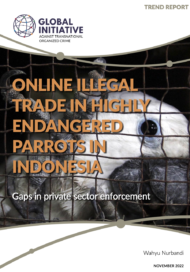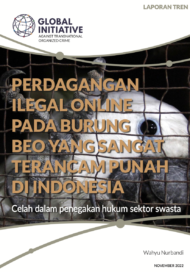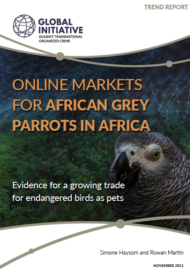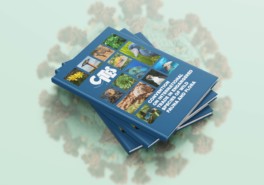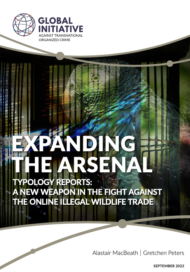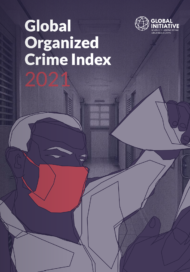Posted on 11 Nov 2022
The illegal bird trade in Indonesia is a long-standing problem involving organized networks that buy trapped birds and transport them to buyers in Indonesian cities and abroad, despite strong legal protections for species. This places unsustainable pressure on the country’s endemic bird population and undermines the rule of law.
This research is aimed at helping policymakers, law enforcement, civil society organizations and the private sector by showing the extent of the trade online and identifying the online spaces where markets are prevalent and their dynamics. The five bird species selected for the study are the endemic Tanimbar corella, the palm cockatoo, the salmon-crested cockatoo and the yellow-crested cockatoo – all of which are listed in Appendix I of the Convention on International Trade in Endangered Species of Wild Flora and Fauna (CITES) and are challenging to breed in large quantities in closed environments – as well as the non-endemic African grey parrot – which is also in CITES Appendix I and whose commercial use, including breeding in captivity and trading, requires a licence. Any trade in these species is illegal unless the specimens are bred in captivity (F2 or above) with legal documentation.
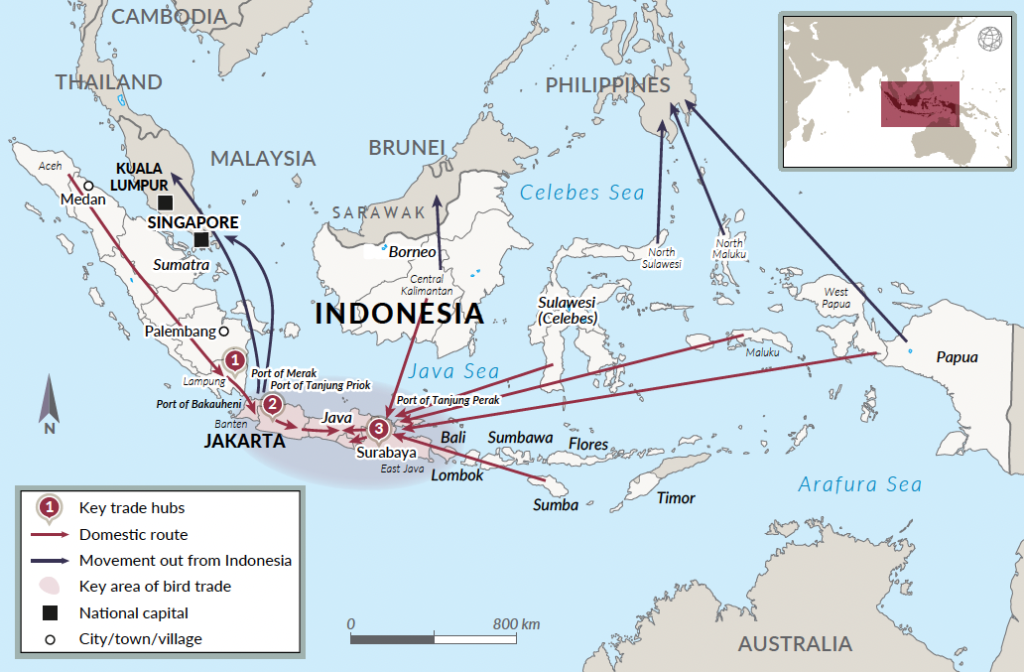
Indonesia is a party to CITES, having joined as a member state in 1978. Since then, the government has legislated against the illegal bird trade and developed enforcement units mandated to combat it. Of the five species studied for this research, only one is not covered by national legislation – African grey parrots, which are not endemic. The government has also developed specialized units to address online crimes, including the online wildlife trade.
This study identifies 62 buy-and-sell groups on Facebook as the locus of the online trade problem, despite Facebook’s strictly worded Community Standards policy against the trade in endangered species. However, the dynamics of this trade also highlight that there are challenges to straightforward post moderation as a regulation tactic. There is evidence of sellers using evasive tactics, including utilizing private mode, vetting new members who join the groups and using code words to evade automated text-based monitoring.
The insights from this report can be used by a range of actors – government authorities, NGOs and the private sector – to improve their enforcement of existing laws, behaviour-change interventions and responses to this trade. Finally, data gathered on companies and actors identified in the course of this research will be used to assist private actors in implementing robust anti-illegal wildlife trade (IWT) safeguards and law enforcement agencies (at the national, regional and international levels) to ensure that criminal groups profiteering from the gradual extinction of endangered species are held accountable.
